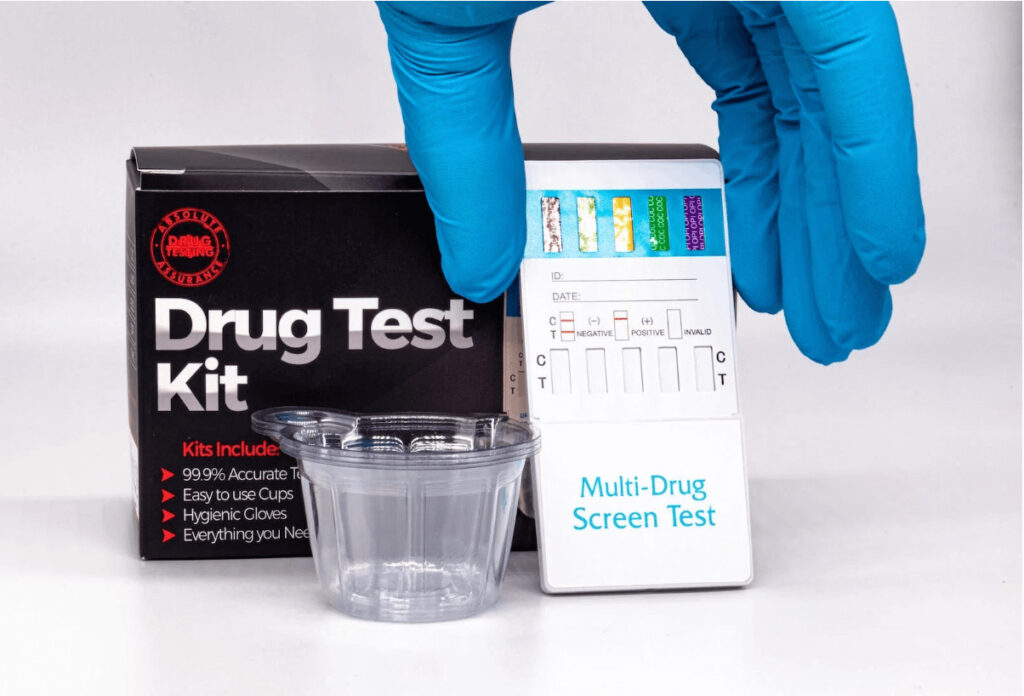Organizing a trustworthy drug test in the workplace is an important step for employers to ensure employee safety and security. A well-run drug test can help maintain a safe work environment, support compliance with regulations, and reduce workplace accidents. It’s important to establish a drug testing policy that is clear and comprehensive, while also ensuring the privacy of employees. Here are some tips for organizing a trustworthy drug test in your company.
1. Pre-employment Drug Testing
The most important element of any drug testing policy is pre-employment screening. Employers should conduct pre-employment drug tests on all new hires to ensure that they do not have any existing substance abuse problems and will maintain a safe work environment. By doing a pre-employment screening oral drug test and/or a urine drug test, employers can reduce the risk of hiring an individual who has substance abuse issues. If an employee fails the pre-employment drug test, they should not be hired. Additionally, employers should conduct random drug testing to ensure employees aren’t using drugs or alcohol at work.

2. Drug Testing Procedures and Protocols
When deciding on a drug-testing procedure, it is important to consider the specific needs of your organization and the individuals being tested. There are several different types of drug tests available. The most common type is a urine test, which can detect drugs that have been used in the previous few days or weeks. Blood tests are also available and are more accurate for detecting recent drug use. Hair follicle tests are used to detect long-term drug use and may be necessary for certain companies or organizations where users need to be monitored over an extended period of time. In addition to deciding on the type of testing, you should also determine how frequently tests will be administered.
3. Drug Testing Rules and Regulations
Before organizing a drug test in your company, it is important to be aware of the possible consequences and implications of introducing such a test. This requires understanding and adhering to the relevant laws and regulations in your area. It is also necessary to make sure that all employees are made aware of these rules before conducting any tests. In addition, it is important to ensure that all procedures for conducting a drug test are fair, clear, consistent, and impartial. Drug testing should never be used as an excuse to target certain individuals unfairly or based on prejudice or bias. All employees should have access to the same types of tests with the same set of expectations and guidelines.
4. Establishing Employee Privacy
When it comes to drug tests, employee privacy should be taken seriously. Even though the results of a drug test are confidential, legislation and regulations like the Americans with Disabilities Act (ADA) dictate that workplace drug testing must protect employees’ rights to privacy. Establishing effective policies and procedures around drug testing can ensure that all information related to an employee’s test is kept secure and private. It is important for employers to also make sure that their standards for drug testing do not unfairly target any particular group or individual, such as those with disabilities or members of protected classes.
5. Retesting Policy
An important part of having a trustworthy drug testing program is establishing a retesting policy. A retesting policy should outline how often employees will be tested and under what circumstances. Random testing is usually recommended as the most effective way to deter drug use in the workplace. Employees should also be informed that any employee who tests positive for drugs or alcohol could face disciplinary action, up to and including termination if applicable. Employers may also want to consider implementing post-accident testing or reasonable suspicion testing depending on their specific needs and risk factors.
6. Drug Testing Resources
When you are ready to establish a drug testing program for your business, there are many resources available to help. You can consult with an expert in drug testing or research online to find information on the different types of tests that are available and how best to use them in your workplace. Additionally, many companies provide comprehensive services such as on-site collection kits, certified laboratories, and legal advice. Finally, don’t forget about employee education. Educating employees on the risks associated with substance abuse will help ensure that they understand why a drug test is being conducted and what the consequences of failing it will be.
7. Documentation and Recordkeeping
It is important to document and keep accurate records of the drug testing process. Make sure that all paperwork, including test results, consent forms, chain-of-custody forms, etc., are securely stored in a way that meets any applicable privacy regulations. Also, make sure to back up electronic records in case of computer failure or other data loss. Documenting and keeping records will help ensure transparency and accuracy throughout the entire process. It will also provide evidence in the event of any legal issues or disputes that may arise as a result of the drug testing program. This will help protect your business and ensure that you are following all applicable laws.
8. Picking the Right Drug Test
Once you have decided on the scope and frequency of drug testing, it’s time to determine which type of drug test is right for your company. Urine tests are the most common method used for workplace drug testing, as they can detect a wide range of drugs but are relatively inexpensive compared to other methods, such as hair testing or saliva tests. Make sure you research the different types of drug tests available to ensure that you choose one that meets your company’s needs. It’s also important to understand the accuracy and reliability of the test, as well as how long it takes to receive results.

Organizing a trustworthy drug test for your company may seem like an overwhelming task, but with the right resources and policies in place, it can be done effectively. Educating employees on the risks associated with substance abuse, developing comprehensive policies and procedures around drug testing, and carefully selecting the right type of drug test are all essential steps to creating a successful program.
